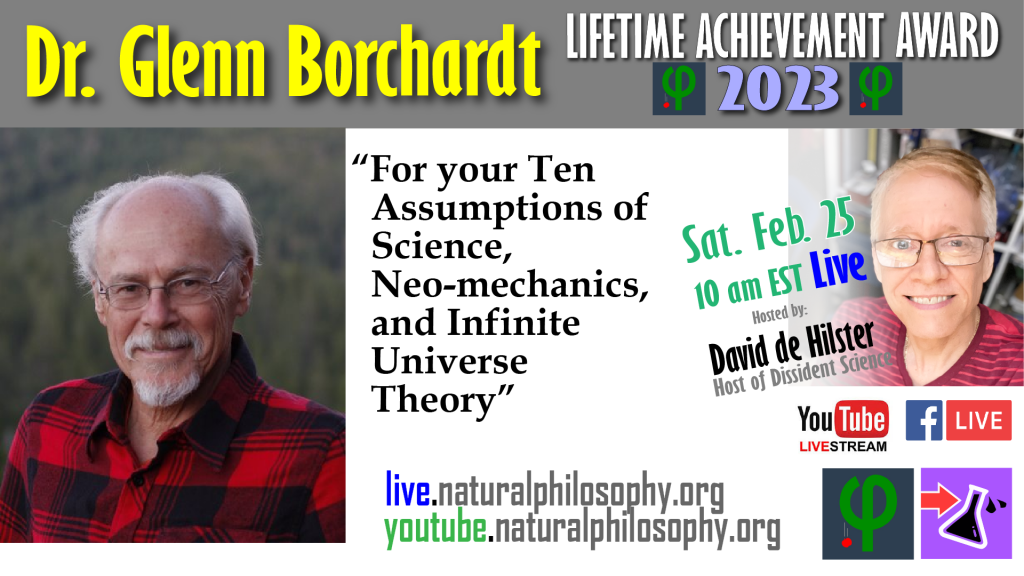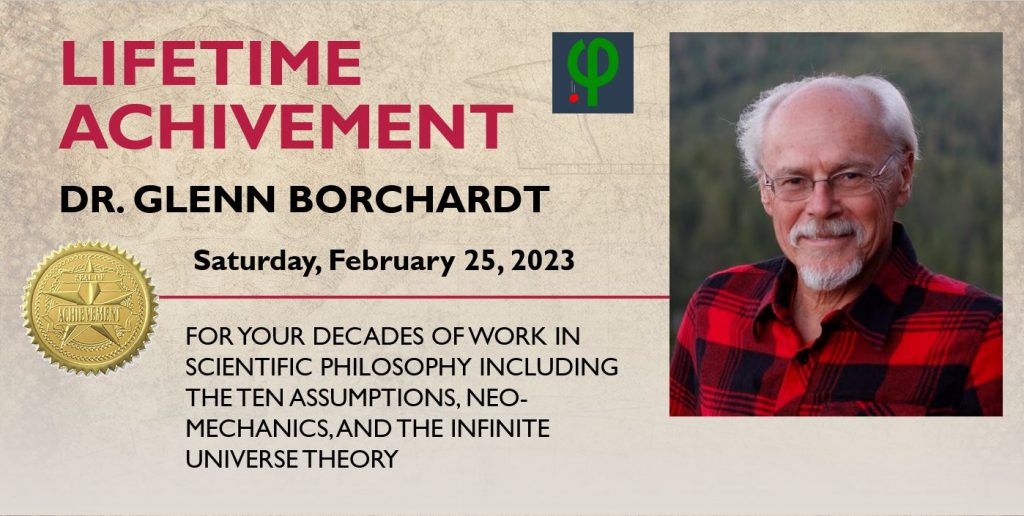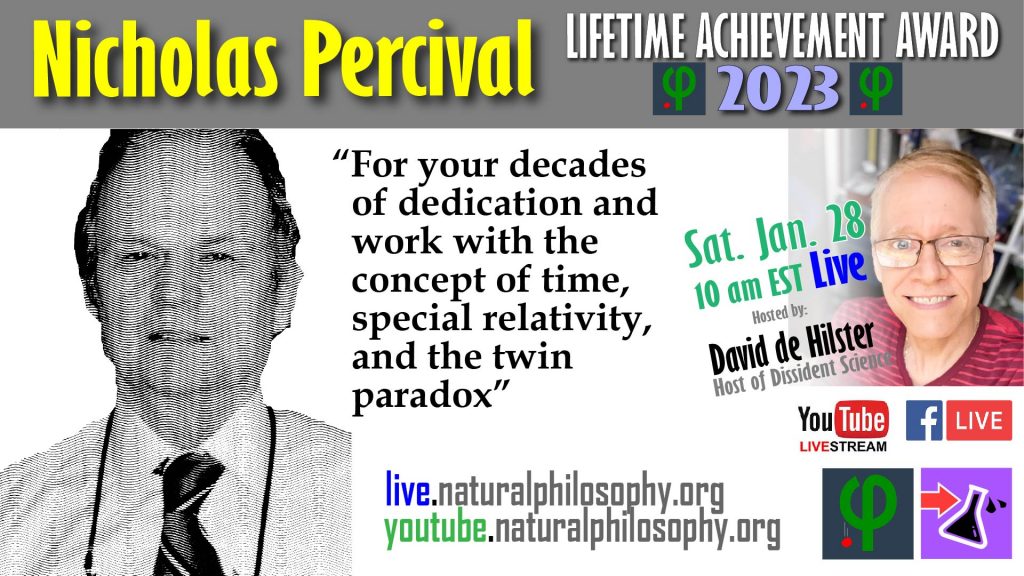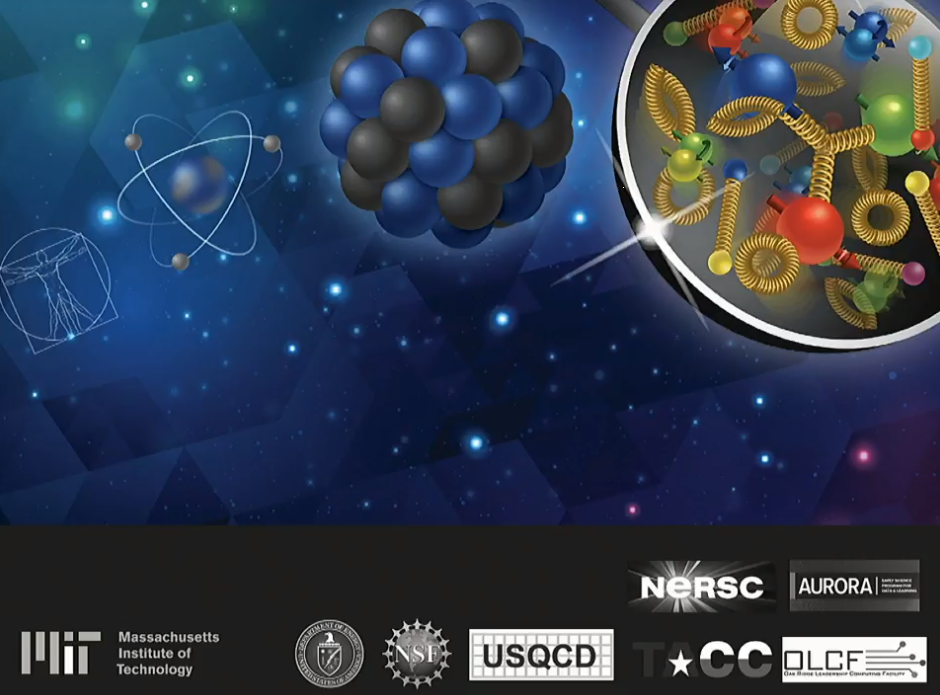Dr. Glenn Borchardt Receives a Lifetime Achievement Award from the CNPS

Dr. Glenn Borchardt received the highest honor from the CNPS: a lifetime achievement award for his work in science philosophy.

Dr. Glenn Borchardt is one of the most influential scientists outside of mainstream science with his Ten Assumptions of Science, Neo-mechanics, and the Infinite Universe Theory. Many modern critical thinkers have based their own models and theories on Borchardt’s ground-breaking work. A geologist by trade, Borchardt has been a staunch opponent of the Big Bang and relativity for many decades and is known as one of the premier scientific philosophers of our time.
Biography
Glenn over 60 years of theoretical, experimental, and observational experience as a scientist especially interested in scientific philosophy. Although he produced over 500 scientific reports, including journal articles, chapters, books, and computer programs, the best by far is his book, “The Scientific Worldview: Beyond Newton and Einstein” (Understanding the Universal Mechanism of Evolution)” (iUniverse, 2007). It poses the ultimate challenge to the current, wildly popular, though absurd claim that the universe is finite and that it exploded out of nothing.
The book is completely logical from beginning to end in support of an infinite universe and a scientific philosophical approach that will replace the Big Bang Theory and the “systems philosophy” supporting it. The challenge for Glenn was to get readers intelligent enough and educated enough to handle the ideas presented and to understand the book’s great significance. The paradigm that Glenn proposes is antithetical to conventional physics and astronomy and cannot be taken seriously by those who hold the idealism of mathematics to be the true test of reality.
A detailed technical review of infinite universe theory was published with Stephen Puetz as “Universal Cycle Theory” and a follow-up book written for the layperson was released in 2017 as “Infinite Universe Theory.” His latest book is “Religious Roots of Relativity,” which introduces the ten assumptions of religion as the indeterministic opposites of “The Ten Assumptions of Science” to explain the popularity and tenacity of relativity and its cosmogenic progeny.
![]()






Responses